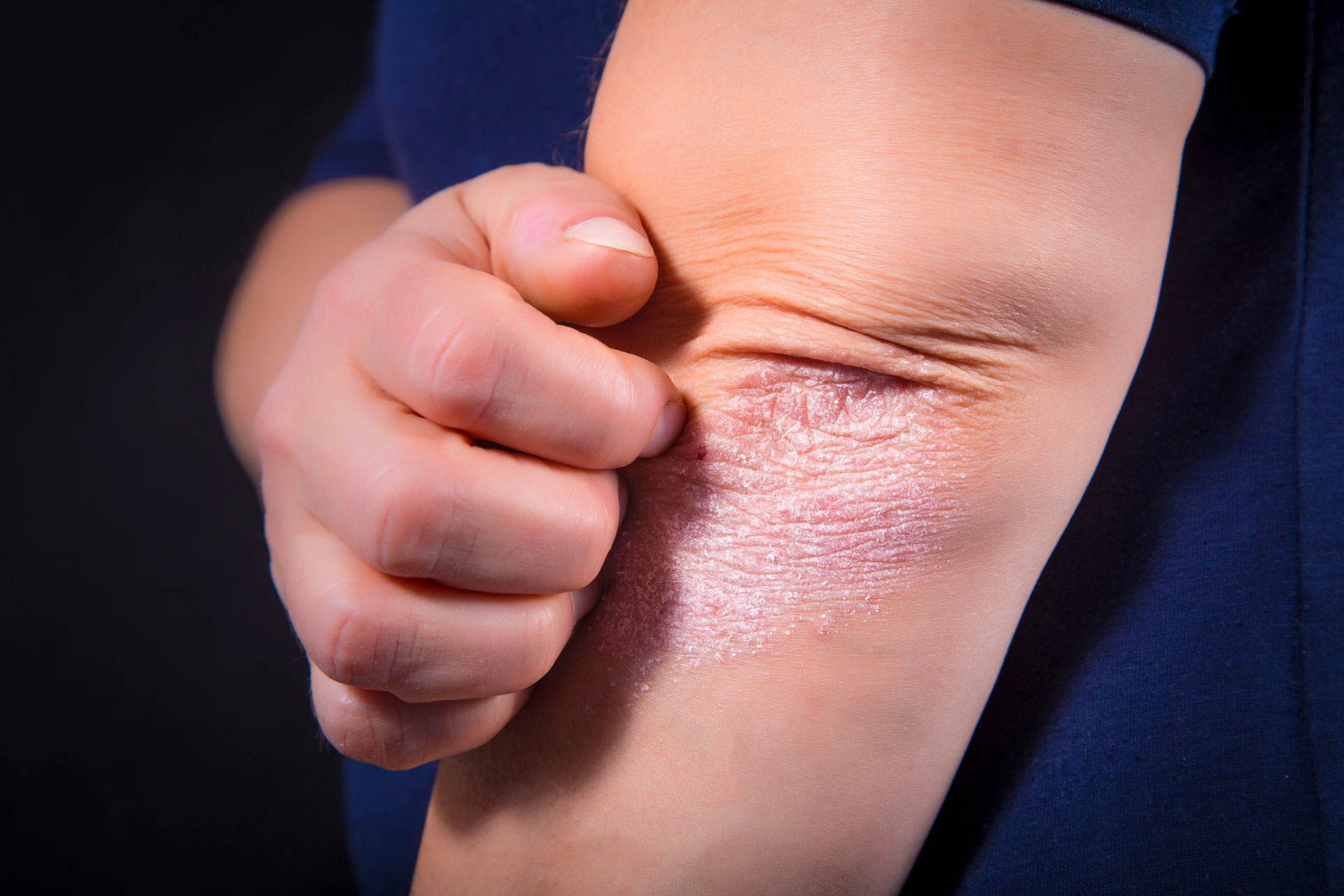The term “rash” refers to diseases that manifest as skin redness, itching, swelling, pimples and other unpleasant symptoms. Skin rashes occur in a wide variety of forms and severity levels, ranging from dry patches caused by skin dryness to oozing blisters and painful cracks. Skin rashes typically involve itching, which can be quite intense and is often considered the worst symptom of the condition. The aesthetic impact caused by skin rashes should not be underestimated, as it can limit social interactions, amongst other things.
What causes rash?
Rashes can have many causes. Skin symptoms may be due to factors such as an irritation reaction, bacterial or fungal infection, a disease caused by a virus, or an autoimmune reaction. Sensitive skin can react to external irritants such as fragrances or rough fabrics. Some skin diseases are associated with a hereditary predisposition. Common factors that trigger or aggravate rashes include:
- central heating (dry indoor air)
- dry frosty air
- temperature fluctuations
- UV radiation from the sun
- profuse sweating
- perfumes, cosmetics
- fragrances, for example in detergents
- artificial fibres, wool
- washing the skin too frequently with soap
- pollen, animal dander
- food ingredients
- medicines
- stress
Different types of rashes
Rashes are categorised according to how they look and what their possible cause is. Common types of rashes include:
- Atopic eczema: a chronic skin condition that causes redness, itching and a rash. Can be hereditary and associated with allergies.
- Psoriasis: an autoimmune disease that causes red, scaly patches and thickened skin.
- Rosacea: symptoms of this condition, which occurs in middle-aged individuals in particular, include sudden flushing of the face, redness, prominent blood vessels, and well as pimples and pustules.
- Contact dermatitis: results from the skin coming into contact with irritating substances or allergens.
- Hives (urticaria): causes red, itchy welts on the skin. It can occur as an irritation reaction or due to some other factor.
- Seborrheic dermatitis: manifests as greasy, yellowish scales, most commonly on the scalp but also on the face and other parts of the body.
- Nummular eczema: round or oval-shaped rash that itches, becomes red and scales.
- Autoimmune-related rash: certain autoimmune diseases, such as systemic lupus erythematosus, can cause skin symptoms as part of the overall range of symptoms.
- Skin infections: amongst other effects, bacterial or fungal infections can cause red spots or blisters.
- Chickenpox, measles and other infectious diseases: a rash is among the typical symptoms of some infectious diseases.
- Rashes as a side effect of medication: some medications may cause skin symptoms.
- Sun rash (polymorphous light eruption): occurs after exposure to the sun and presents as redness and itching of the skin.
When to see a dermatologist
There are several situations where self-care is not sufficient for treating a rash, and it is advisable to seek medical attention:
- Severity of the rash: If the rash is severe, covers large areas of the skin, or significantly affects your life, such as affecting sleep or work, it is wise to seek medical attention.
- Persistence: If the rash does not improve or alleviate with self-care within a few weeks, it may be necessary to have it examined by a specialist.
- Signs of infection: If the rash is associated with signs of infection, such as fever, oozing or abscesses, it is important to seek a doctor’s assessment of the potential need for treatment.
- Severe itching: If the rash is accompanied by severe itching that does not respond to self-care and causes sleep difficulties, it is advisable to seek medical assistance.
- Rashes around the eyes, mouth or genital area: Rashes occurring on these sensitive areas can be particularly difficult, and often require a doctor’s evaluation and treatment.
- Previous rashes or hereditary factors: If you have had serious rashes before or have a hereditary predisposition to skin conditions, it is important to monitor the development of your rash and seek treatment early if necessary.
- Uncertainty about the cause of the rash: If you are unsure about what is causing your rash or if it is atypical, consulting a doctor can help identify the cause and determine the necessary treatment.
It is important to remember that a doctor is the best person to assess the severity of the rash and determine the necessary treatment. If you are uncertain about the treatment of the rash or if it causes concern or discomfort, do not hesitate to schedule an appointment with a dermatologist. With the medications and instructions prescribed by the doctor, you can ensure that your rash is treated properly.








































